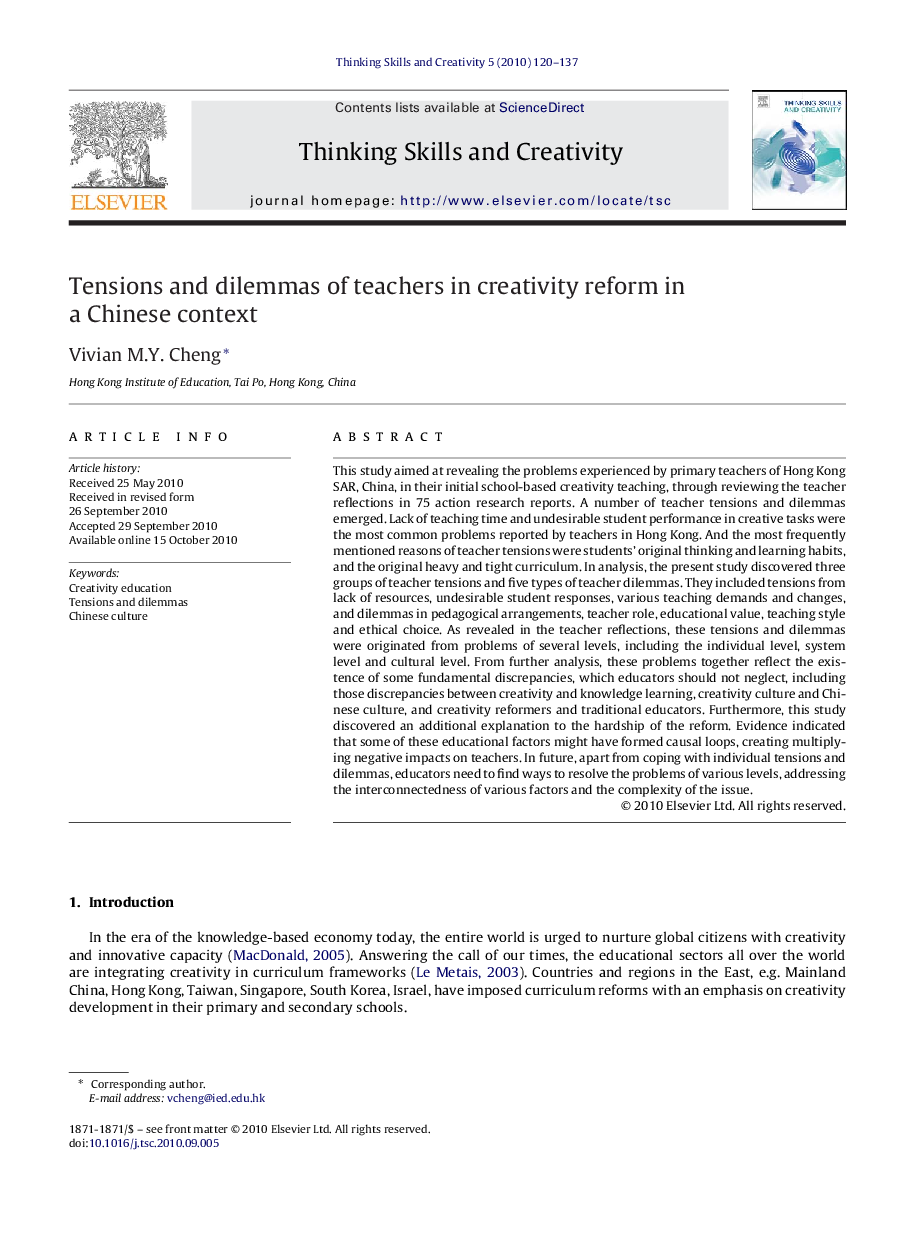| Article ID | Journal | Published Year | Pages | File Type |
|---|---|---|---|---|
| 375773 | Thinking Skills and Creativity | 2010 | 18 Pages |
This study aimed at revealing the problems experienced by primary teachers of Hong Kong SAR, China, in their initial school-based creativity teaching, through reviewing the teacher reflections in 75 action research reports. A number of teacher tensions and dilemmas emerged. Lack of teaching time and undesirable student performance in creative tasks were the most common problems reported by teachers in Hong Kong. And the most frequently mentioned reasons of teacher tensions were students’ original thinking and learning habits, and the original heavy and tight curriculum. In analysis, the present study discovered three groups of teacher tensions and five types of teacher dilemmas. They included tensions from lack of resources, undesirable student responses, various teaching demands and changes, and dilemmas in pedagogical arrangements, teacher role, educational value, teaching style and ethical choice. As revealed in the teacher reflections, these tensions and dilemmas were originated from problems of several levels, including the individual level, system level and cultural level. From further analysis, these problems together reflect the existence of some fundamental discrepancies, which educators should not neglect, including those discrepancies between creativity and knowledge learning, creativity culture and Chinese culture, and creativity reformers and traditional educators. Furthermore, this study discovered an additional explanation to the hardship of the reform. Evidence indicated that some of these educational factors might have formed causal loops, creating multiplying negative impacts on teachers. In future, apart from coping with individual tensions and dilemmas, educators need to find ways to resolve the problems of various levels, addressing the interconnectedness of various factors and the complexity of the issue.
